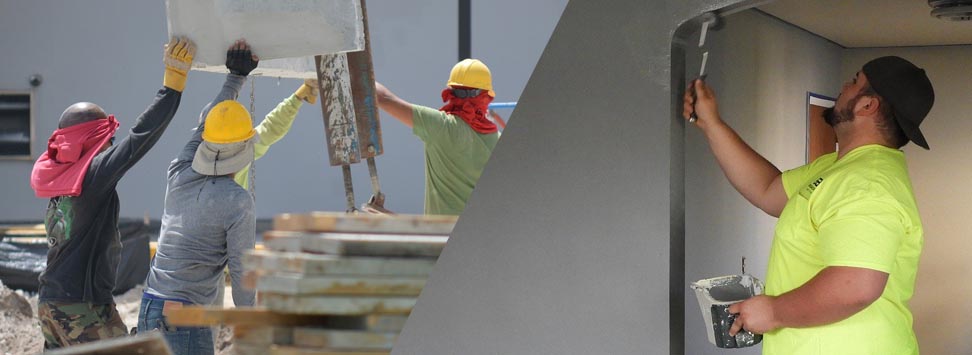
Low cost car insurance starts with Michigan's minimum liability car insurance requirements (only if you are eligible to purchase the minimum requirements).
Of course, it is always recommended to purchase Comprehensive and Collision, as well as Uninsured Motorist coverage to ensure that you are adequately covered in the event of an accident or property damage and to cover medical expenses.
Many insurance companies offer discounts to drivers who have not been in accidents for many years. Talk to your local (Licensed Spanish-speaking agent if needed) to find out if you are eligible for other types of discounts and get your free auto insurance quote.
You can reduce the cost of your auto insurance by investing in auto security devices, such as burglar alarms and GPS tracking devices.
If a garage is not available, then parking under a street light may keep your car safer as oppose to parking along a dark side road.
In areas that there’s considerable high crime, an effort should be made to make your car as resistant as possible to theft or damage. By doing this, you obtain cheaper car insurance rates.

Drivers whose licenses are revoked or suspended for DUIs or other serious traffic offenses, including driving without insurance, must have their insurance company file an SR-22 Form, certificate of financial responsibility, with the Michigan Department of State SOS prior to license restoration. In most situations, SR-22 filings are required for at least three years.
SR22 coverage is often expensive. Depending on the number and severity of traffic violations and convictions, the higher your rates are going to be.
1. If you are currently insured, then you can simply call your existing car insurance carrier and ask them to file an SR22 certificate for you. If they decline, then you will need to secure insurance with another company.
2. If you are not currently insured, be prepared to pay more from a new insurance policy as companies will base your rates on your very poor driving record.
3. If you do not own a vehicle, getting an SR22 certificate will take some extra work. You will need to purchase Non-Owners Car Insurance policy prior to filing a request for an SR-22. The good news is that since you do not have a vehicle to insure, your rates will be much lower.

While Detroit is known for car manufacturing and healthcare industries, Hispanic owned small businesses continue to thrive. And being small business owner, there are certain types of business insurance coverage one must buy to protect their customers and business in the event of accident, injury or other liability.
Workers' compensation is an insurance system used to provide income replacement, medical benefits, and rehabilitation benefits to employees who are injured while at work. While certain very small businesses are exempt from carrying worker’s compensation insurance; if a private business has three or more employees, or employs one or more workers fulltime (35 hours or more per week) for 4 months or more during the year, the employer is subject to the Workers' Disability Compensation Act and must provide worker’s compensation benefits.
On average, Detroit business owners can expect to pay between $0.74 and $0.78 per $100 covered in payroll.
Workers Compensation Insurance rates are based on a number of factors, which includes the risks associated with a particular industry. A construction business is going to pay higher premiums than a family-owned grocery store due to the inherent nature of the job.
General Liability insurance, also called “commercial liability insurance”, provides insurance protection for your business should any claims made by a third party regarding bodily injury or damage to their property as a result of an action made by an employee or defective product or service.
Businesses that provide company-owned vehicles to its employees or have certain types of machinery operated by employees are required to purchase commercial auto insurance. The monthly cost of this insurance will vary depending on the type of vehicles, the number of authorized drivers, and your type of business.
The construction industry has the highest variety of surety bonds than any other industry. Virtually any construction project, whether public works project, remodeling project or private construction, require surety bonds in order to bid on and subsequently work on the particular project.

Bid bonds are required by federal law on all projects valued at $100,000 or more and guarantees that you, as the contractor, will accept the job if chosen.
Performance bonds/Contract guarantee you will work the project through to completion adhering to any applicable laws and construction standards.
Payment bonds guarantees that all workers, subcontractors, and suppliers will be paid by the contractor according to the terms of the contract.
Contractor license bonds are not project specific. They simply assure project managers and the general public that you will conduct business legally and ethically.
It’s the Surety Company who establishes the cost each applicant pays for the various construction bonds based on a number of factors, such as: applicant’s credit score, work experience, business financial statements, etc.
Contractors in good financial standing generally pay between 1% and 3% of the required bond amount.

Even though it’s not required by law, home insurance is an important part of owning a home and is required by lenders to cover the balance of your mortgage in the event of damage or loss due to theft, fire, ice and wind damage, and vandalism.
Homeowners in good standing can expect to pay an average of $1,140 per year for home insurance.
Insurance companies base the cost of home insurance on many factors:

Original Medicare in Michigan is a federal health insurance program for people aged 65 years or older and for people under 65 years with certain disabilities and illnesses, such as ALS or ESRD or if they have been receiving disability benefits for 24 months.
Part A (hospital insurance) covers things like:
Hospital care, Skilled Nursing Facility, medications you receive while in the hospital or nursing facility, some limited home health care and Hospice care.
Part B (medical insurance) covers things like:
Doctors’ visits, Preventive care, Lab tests, certain medical equipment (wheelchairs, for example), and Mental health care.
In addition to these options, you may also considered speaking with a licensed Medicare broker to discuss additional Medicate options through private insurance companies.
Medicare Part C (Medicare Advantage), which gives the same level of coverage as Original Medicare, but can include vision and dental benefits, as well as prescription drug coverage.
Medicare Part D: provides prescription drug coverage.